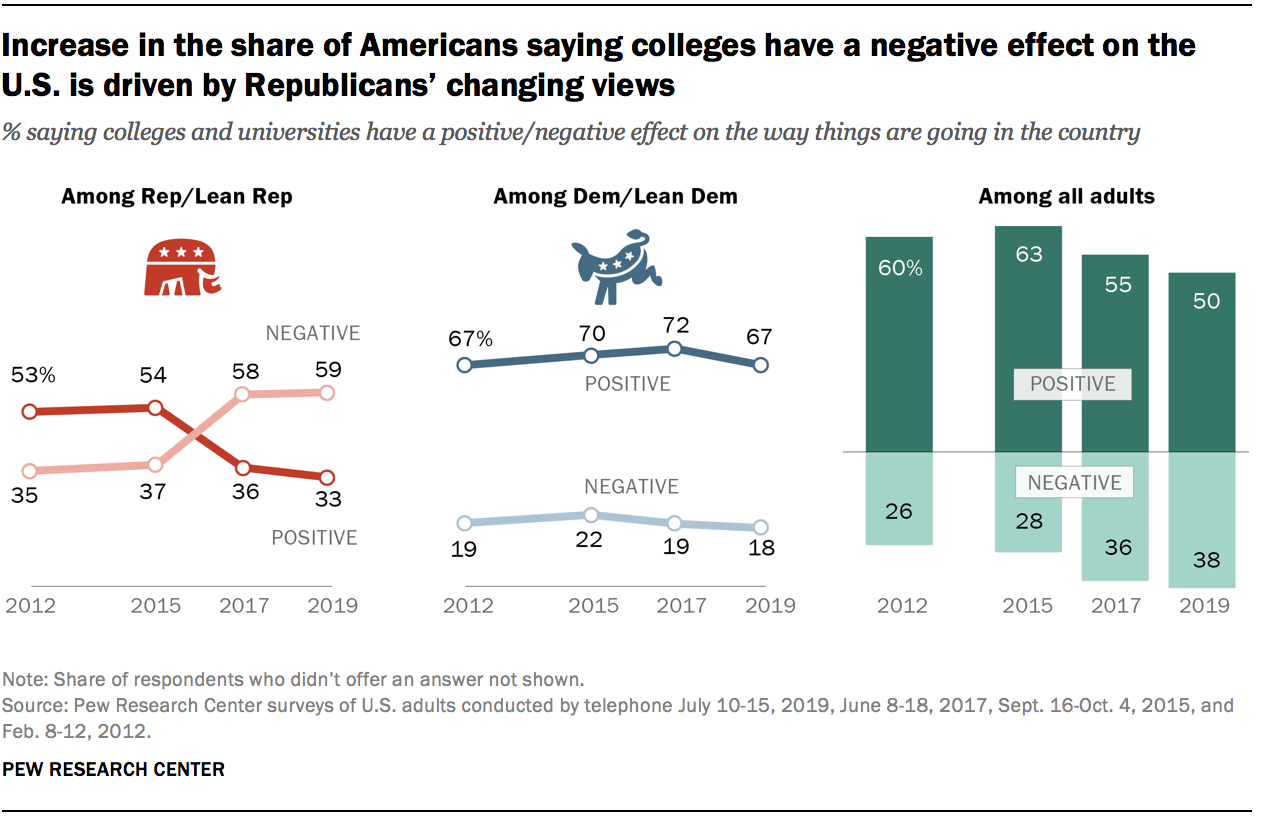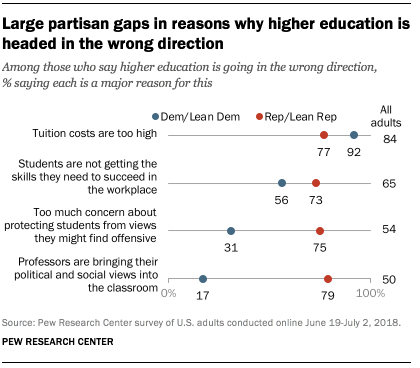A few days ago, a commenter (‘J’) at this website linked to the Pew Research Center’s latest survey data on partisan views of education. See The Growing Partisan Divide in Views of Higher Education.
Kim Taylor (of Pew) summarizes the survey:
Americans see value in higher education – whether they graduated from college or not. Most say a college degree is important, if not essential, in helping a young person succeed in the world, and college graduates themselves say their degree helped them grow and develop the skills they needed for the workplace. While fewer than half of today’s young adults are enrolled in a two-year or four-year college, the share has risen steadily over the past several decades. And the economic advantages college graduates have over those without a degree are clear and growing.
Even so, there is an undercurrent of dissatisfaction – even suspicion – among the public about the role colleges play in society, the way admissions decisions are made and the extent to which free speech is constrained on college campuses. And these views are increasingly linked to partisanship.
A new Pew Research Center survey finds that only half of American adults think colleges and universities are having a positive effect on the way things are going in the country these days. About four-in-ten (38%) say they are having a negative impact – up from 26% in 2012.
The share of Americans saying colleges and universities have a negative effect has increased by 12 percentage points since 2012. The increase in negative views has come almost entirely from Republicans and independents who lean Republican. From 2015 to 2019, the share saying colleges have a negative effect on the country went from 37% to 59% among this group. Over that same period, the views of Democrats and independents who lean Democratic have remained largely stable and overwhelmingly positive.
An earlier (2018) Pew survey found that partisans had different concerns about higher education:
For it all – and I do not share these partisans’ doubts about higher education – there are clear benefits (of understanding individually & collectively, and of material benefit individually & collectively):
Even amid doubts about the extent to which college prepares people for today’s job market and disagreement about what the role of college should be, the fact remains that a four-year college degree has very real economic benefits. The income gap between college graduates and those without a bachelor’s degree has grown significantly over the past several decades. In 1990, the median annual earnings for a full-time worker ages 25 to 37 with a bachelor’s degree or higher was $53,600. At the time, this compared with $40,200 for a worker with some college experience but no bachelor’s degree and $33,600 for a worker with no college experience. In 2018, the difference was even more pronounced: $56,000 for a worker with a bachelor’s degree or more education, $36,000 for someone with some college education and $31,300 for a high school graduate.
The full essay discussing the latest Pew survey is well worth reading; it’s notable and regrettable that many parts of America have come to doubt the pursuit of happiness – in the deepest sense – that higher education offers.


